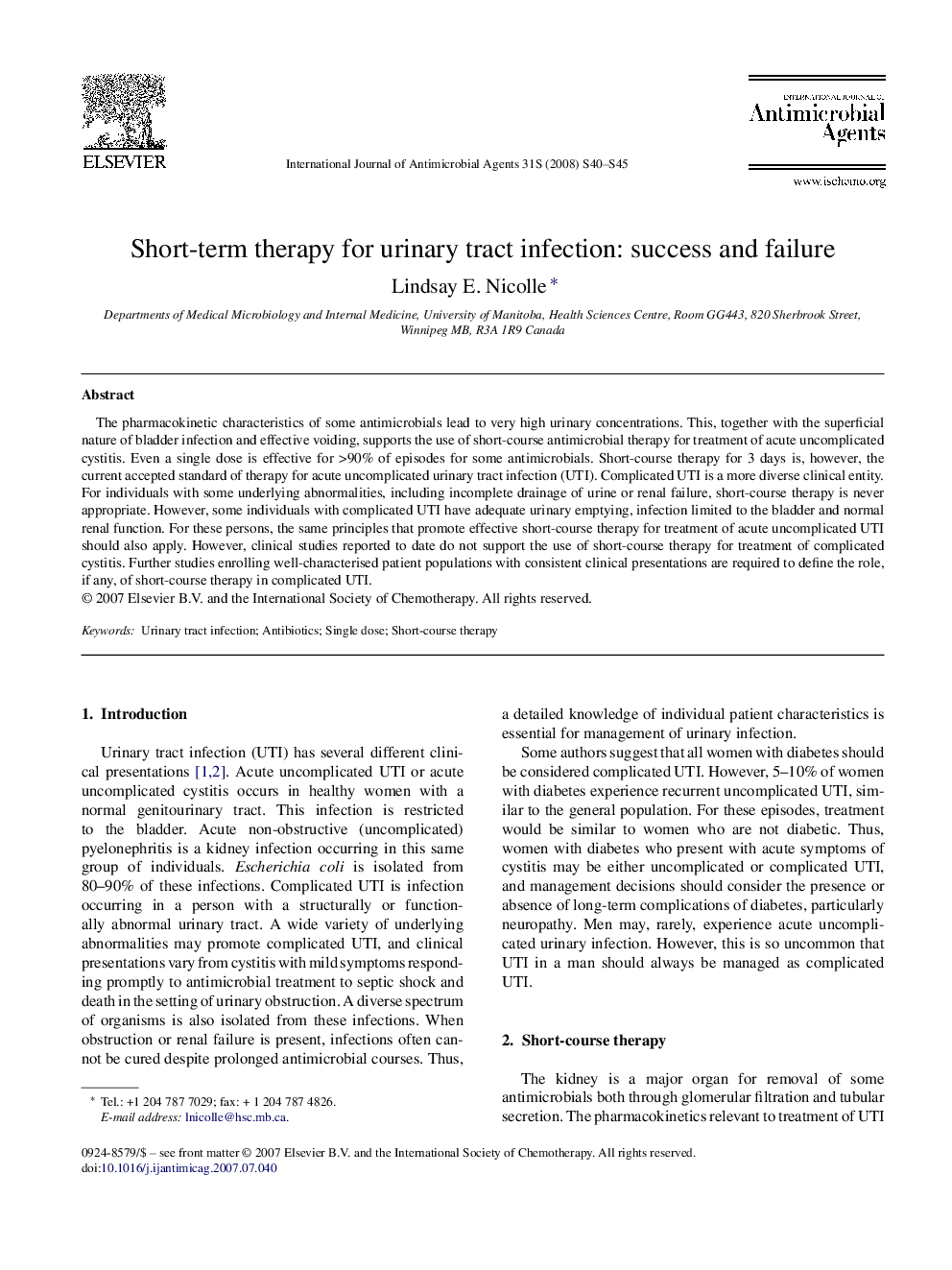| Article ID | Journal | Published Year | Pages | File Type |
|---|---|---|---|---|
| 3360672 | International Journal of Antimicrobial Agents | 2008 | 6 Pages |
The pharmacokinetic characteristics of some antimicrobials lead to very high urinary concentrations. This, together with the superficial nature of bladder infection and effective voiding, supports the use of short-course antimicrobial therapy for treatment of acute uncomplicated cystitis. Even a single dose is effective for >90% of episodes for some antimicrobials. Short-course therapy for 3 days is, however, the current accepted standard of therapy for acute uncomplicated urinary tract infection (UTI). Complicated UTI is a more diverse clinical entity. For individuals with some underlying abnormalities, including incomplete drainage of urine or renal failure, short-course therapy is never appropriate. However, some individuals with complicated UTI have adequate urinary emptying, infection limited to the bladder and normal renal function. For these persons, the same principles that promote effective short-course therapy for treatment of acute uncomplicated UTI should also apply. However, clinical studies reported to date do not support the use of short-course therapy for treatment of complicated cystitis. Further studies enrolling well-characterised patient populations with consistent clinical presentations are required to define the role, if any, of short-course therapy in complicated UTI.
